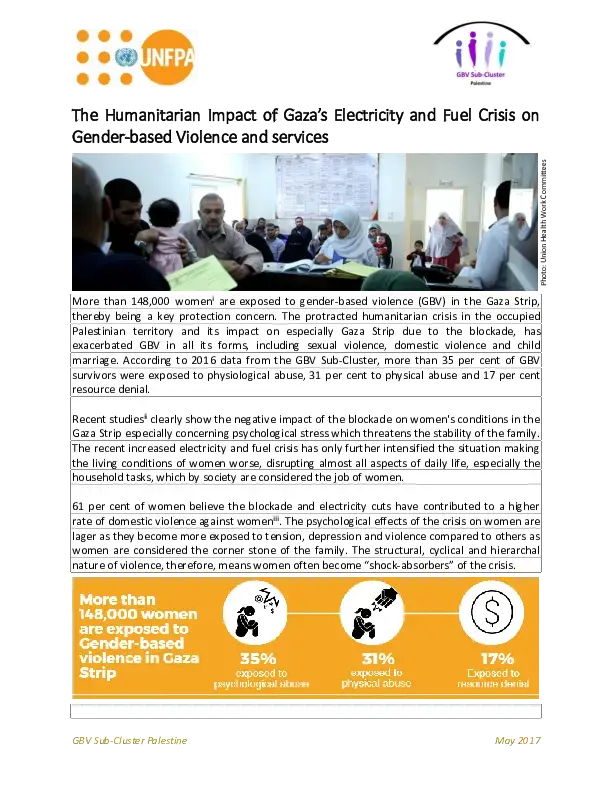More than 148,000 womeni are exposed to gender-based violence (GBV) in the Gaza Strip, thereby being a key protection concern. The protracted humanitarian crisis in the occupied Palestinian territory and its impact on especially Gaza Strip due to the blockade, has exacerbated GBV in all its forms, including sexual violence, domestic violence and child marriage. According to 2016 data from the GBV Sub-Cluster, more than 35 per cent of GBV survivors were exposed to physiological abuse, 31 per cent to physical abuse and 17 per cent resource denial.
Recent studiesii clearly show the negative impact of the blockade on women's conditions in the Gaza Strip especially concerning psychological stress which threatens the stability of the family. The recent increased electricity and fuel crisis has only further intensified the situation making the living conditions of women worse, disrupting almost all aspects of daily life, especially the household tasks, which by society are considered the job of women. 61 per cent of women believe the blockade and electricity cuts have contributed to a higher rate of domestic violence against womeniii. The psychological effects of the crisis on women are lager as they become more exposed to tension, depression and violence compared to others as women are considered the corner stone of the family. The structural, cyclical and hierarchal nature of violence, therefore, means women often become “shock-absorbers” of the crisis.


